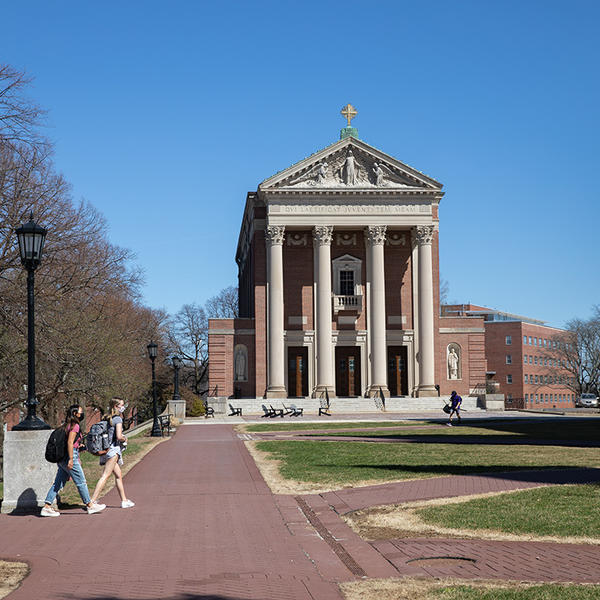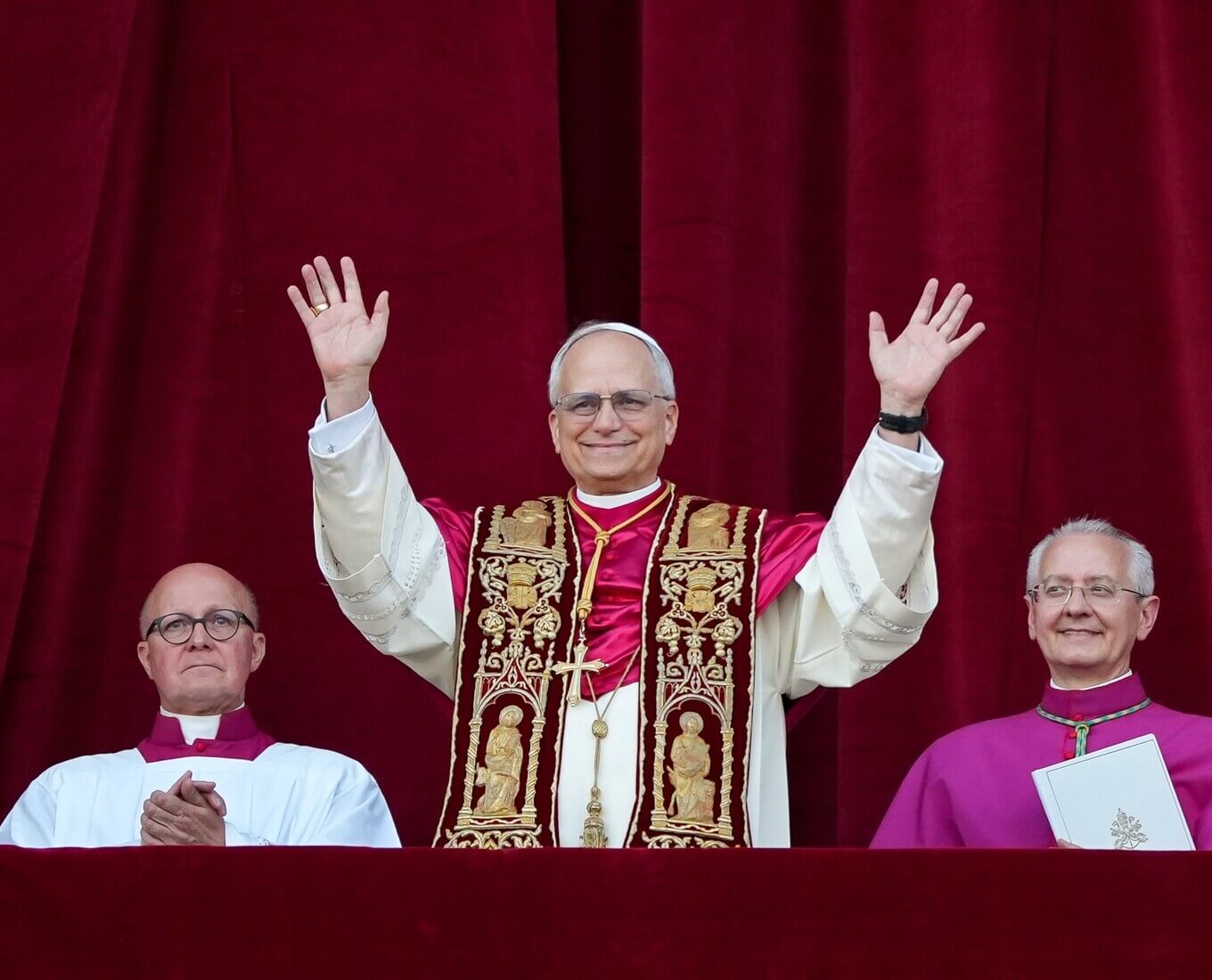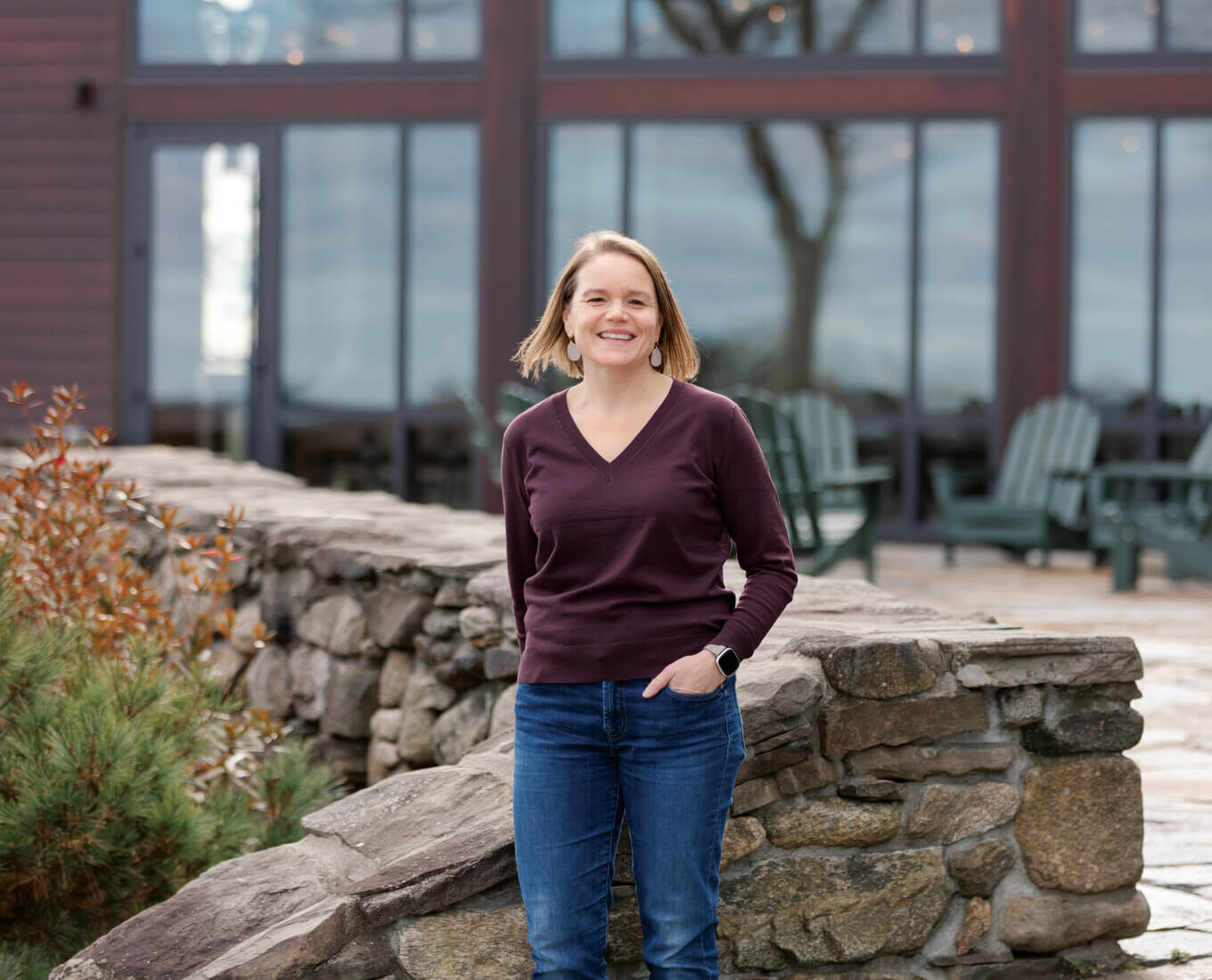In 2019, following months of discernment, the Society of Jesus announced four aspirations, known as the Universal Apostolic Preferences. These preferences, confirmed by Pope Francis, were offered as guides for the Jesuits' own ministry and for the work of Jesuit institutions, like Holy Cross, over the next decade.
Marybeth Kearns-Barrett ’84, director of the Office of the College Chaplains, says she finds these latest preferences remarkably “succinct” and welcoming to all who want to engage with them. “I think these preferences are saying we are in a new moment,” she says.
Kearns-Barrett hopes they will spark conversation among leadership, faculty, staff and students and also help orient the College’s future in concrete ways through its ongoing strategic planning and other formative processes: “The preferences remind us that it is central to our mission as a Jesuit college to engage with these challenges.”
Here, Kearns-Barrett walks through the four Universal Apostolic Preferences and how they could guide the College:
1. ‘To show the way to God through the Spiritual Exercises and discernment’
"The purpose of this preference, I believe, is ultimately an invitation to be receptive to the call of love in our lives — which can lead us to a place of greater interior freedom, openness and generosity," Kearns-Barrett says.
Retreats at the College’s Thomas P. Joyce '59 Contemplative Center offer many opportunities for stillness and discernment for students, staff, faculty and alumni. Kearns-Barrett says this preference could also inspire the College community to build in more time for deep reflection — fostering even further an Ignatian culture of “contemplatives in action.”
“[Engaging with this preference can help us] hear the existential challenges being posed to us in this moment — challenges such as embracing anti-racism, addressing climate change and the question of who has access to a Holy Cross education,” she says.
2. ‘To walk with the poor, the outcasts of the world, those whose dignity has been violated, in a mission of reconciliation and justice’
“Worth noting in this preference is the emphasis on ‘walking with,’ as well as the call to change economic, political and social structures that generate injustice,” Kearns-Barrett says. “This is something we’re hearing a lot on our campus — this cry for justice, as well as reconciliation.”
She says “walking with” is an important orientation to bring to the College community's engagement with people we encounter in Worcester as well as in immersion and study abroad experiences. At the same time, it calls people to attend to the experiences of those who have felt on the margins within the campus community: “All of us are being asked, ‘How does the Holy Cross experience differ depending on our social location? How does the call 'to walk with' shape who I know, what I care about, and how I spend my time?’”
Scholarship, campus programming and engaged learning opportunities all play key roles in furthering understanding of social justice and the community we seek to become, Kearns-Barrett says.
3. ‘To accompany young people in the creation of a hope-filled future’
As an institution dedicated to serving young adults, Holy Cross has a vital role to play in graduating students with a sense of a hope-filled future, Kearns-Barrett says. And facing head-on today’s challenges is part of that. The language used here is important to note, she says: “As we ‘accompany’ young people, are we who are not so young willing to let them lead as we walk beside them?”
For example, Kearns-Barrett says a group of students has expressed interest in pursuing an initiative called the Pause Project, which would create more time to “pause” on campus, an effort that resonates with the Ignatian call to be “contemplatives in action.”
“To accompany them is to say, ‘Tell us more about why you want this. I think it’s a great idea, too,’” she shares, “‘but since it’s coming from you, can we let you lead the way on this?’”
Habits formed at Holy Cross will shape students for life, Kearns-Barrett notes: “If valuing time to pause is how you learn to be in these four years, it becomes something you can draw on and learn to prioritize in the future.”
4. ‘To collaborate in the care of our Common Home’
“This preference pointedly names our responsibility to look squarely at the climate catastrophe we face and respond to it creatively and with a sense of urgency,” Kearns-Barrett says. “What are our energy sources? What does our carbon footprint look like?
“When I was a student at Holy Cross in the early 1980s, I was introduced to the concept of valuing simplicity instead of consumption,” Kearns-Barrett reflects. “If we’re going to talk about care for the Earth, a spirituality of simplicity is important. We need to think about how we infuse our lifestyle at Holy Cross with this sense of simplicity, and that might mean doing some things differently.”
Kearns-Barrett emphasizes that the four preferences are all interwoven. “You can’t care for the poor and the outcast without thinking about climate, because the poor are the most impacted,” she notes. “Students living with the threat of climate collapse struggle to envision a hope-filled future. This is where the first preference for discernment comes in: We are living in a time that calls us all to conversion. The preferences call to us with urgency but also with hope; they can serve to guide our path as we move forward.
“It is up to us to wrestle with [these preferences] and open ourselves up to see how they might shape us,” she says.


